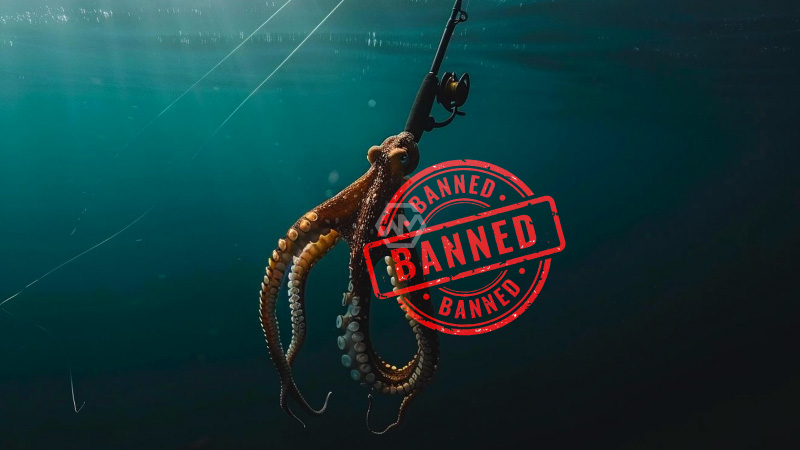- New ordinance halts octopus fishing in three regional phases from July to October.
- Licensed vessels must notify authorities to suspend their fishing permits.
- The ban aims to protect Octopus vulgaris during breeding and recovery periods.
Portugal has officially enacted a seasonal ban on octopus fishing, targeting the conservation of Octopus vulgaris across national waters. The measure, published in the Official Gazette, enforces a complete halt to octopus capture, retention, and sale in specific zones from July 17 to October 14.
Vessels using methods like shelter traps, cage traps, or spearfishing are subject to the restrictions. Those wishing to voluntarily suspend activity must notify the Directorate-General for Natural Resources, Safety, and Maritime Services (DGRM) by email.
Seasonal Closure of Octopus Fishing Begins as Portugal Strengthens Marine Conservation
The first phase of the ban affects the northern coastal region, beginning on July 17 and running through August 15. The second phase shifts the restriction further south, from August 16 to September 14. Finally, the southernmost waters fall under the closure from September 15 to October 14. These phased intervals align with natural octopus breeding cycles, aiming to safeguard reproductive success and ensure long-term stock health.
This annual restriction is rooted in scientific data and reflects broader EU and global efforts to maintain marine biodiversity. Overfishing has long posed a threat to cephalopod populations, particularly the common octopus, which plays a vital ecological and economic role. By implementing these measures, Portugal strengthens its stance as a regional leader in responsible fisheries management.
To ease the transition, authorities have allowed vessel owners to temporarily suspend licenses without penalty. This move offers financial and logistical relief to the local fishing community, many of whom rely on octopus for their livelihoods. With license suspension granted for the 30-day period, it prevents illegal fishing while offering time for maintenance or alternative planning.
While enforcement is strict, exceptions exist for emergency or technical circumstances. If a vessel must travel to a shipyard, the DGRM must be informed at least three days prior to departure. These clear communication protocols aim to prevent violations while still accommodating maritime necessities. As climate concerns and stock depletion rise, these kinds of adaptable policies may become the norm across European waters.
Portugal’s seasonal octopus fishing ban strikes a crucial balance between environmental preservation and sustainable fishing, setting a valuable example for marine stewardship.
“The sea, once it casts its spell, holds one in its net of wonder forever.” – Jacques Cousteau



